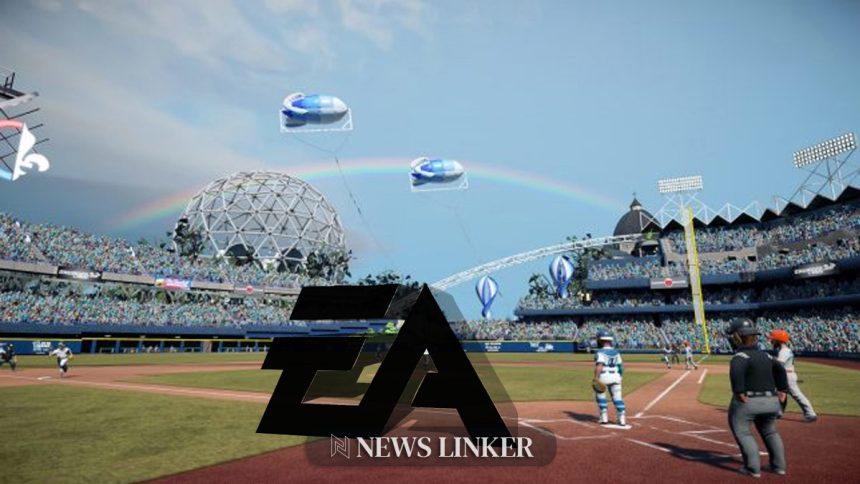Global gaming giant Electronic Arts (EA) stands on the verge of a significant ownership shift as negotiations advance for a record-breaking $50 billion buyout. Industry watchers and employees alike are weighing the potential impact of EA leaving the public market—a move that would reshape the company’s future operations and affect the studios responsible for major franchises like FIFA (now EA FC), Battlefield, The Sims, and Star Wars: Jedi. Employees and fans are awaiting official statements, expecting the deal’s structure to influence staff, investment priorities, and even the next wave of anticipated game titles. In the highly competitive environment of interactive entertainment, such a transformative move occupies a central position in global business headlines.
Previous reports about Electronic Arts’ trajectory focused on its public company challenges, with declining performance in core franchises and increased competition from both tech conglomerates and indie studios. Past speculation around mergers or acquisitions surfaced but never approached the scale of this leveraged buyout proposal. Unlike earlier rumors, this deal involves private equity powerhouses and governmental investors, signaling a different ownership approach compared to the more common publisher or media mergers. Employee reductions and restructuring in the larger industry, including at rivals like Activision-Blizzard post-acquisition, frame expectations for what might follow if the deal is finalized.
Who Is Behind the Proposed Buyout?
Partners leading the bid include private equity firm Silver Lake and Saudi Arabia’s Public Investment Fund (PIF), both recognized for their substantial stakes across entertainment and sports. The PIF, which already holds a significant minority stake in EA, has dramatically expanded its global influence in recent years through investments in gaming, Hollywood, and high-profile sports collaborations. Amidst mounting discussions, questions have been raised about the role and intentions of such sovereign-backed investors in shaping creative and commercial strategies at major game studios.
What Financial Structure Is At Play?
The acquisition would be executed as a leveraged buyout—an arrangement where significant debt is used to finance the transaction, with EA’s own assets securing much of the obligation. If EA’s operational revenue falls short, the liability for repayment stays with the company rather than its new owners. This risk mirrors past buyouts, like that of Toys R Us, which ended in store closures and layoffs. EA’s potential debt load, though close to its market value of $43 billion, raises widespread questions about how the business might accommodate future financial pressures or downturns.
What Does This Mean for EA’s Games and Studios?
Should the deal proceed, ownership of acclaimed studios such as BioWare, Respawn Entertainment, Maxis, and DICE may experience operational changes. Franchises including Mass Effect, Dragon Age, Apex Legends, Battlefield, The Sims 4, and EA Sports titles could face new production priorities, investment shifts, or restructuring. The publisher’s recent internal difficulties—including the loss of the FIFA license and downsizing at BioWare—have heightened sensitivity to any further disruptions. EA leadership commented,
“We remain committed to our vision of delivering exceptional interactive experiences, regardless of changes in our ownership structure.”
Meanwhile, Silver Lake expressed confidence,
“This transaction aims to support EA’s long-term innovation and growth strategy in a rapidly evolving market.”
Concerns persist regarding possible layoffs or asset sell-offs, especially as industry precedent points to upheaval following major leveraged deals. The rise of “sportswashing”—where state-linked investors advance their influence in entertainment for reputational gains—further complicates the outlook for studios and employees, as well as public perception. Looking ahead, the responsiveness of EA’s management team and its new owners to fans and creative staff will likely determine the publisher’s long-term prospects within a dramatically consolidating video game market.
Major leveraged buyouts bring complex outcomes. For EA’s staff and properties, financial restructuring can generate instability but may also present new opportunities if managed prudently. While games like Battlefield 6 are expected to offset recent setbacks, investors and regulators will scrutinize the deal for its long-term impact on employment, creative freedom, and global gaming trends. Closer observation of private equity’s effect on creative industries suggests that short-term cost-cutting often brings talent loss and project cancellations. However, new capital can also support expansion if aligned with market realities. The sustainability of EA’s beloved series, and the fate of studios like BioWare and Respawn, now rest on decisions by parties with diverse motives and global interests. Readers should monitor how leveraged buyouts in entertainment have affected not only balance sheets, but also the wider gaming ecosystem and innovation capability.










